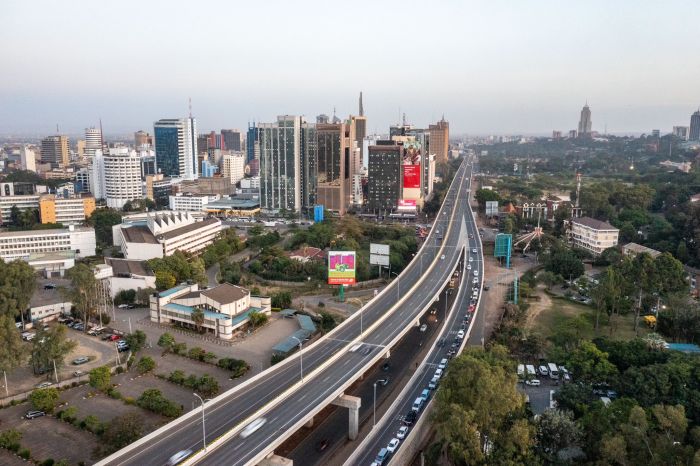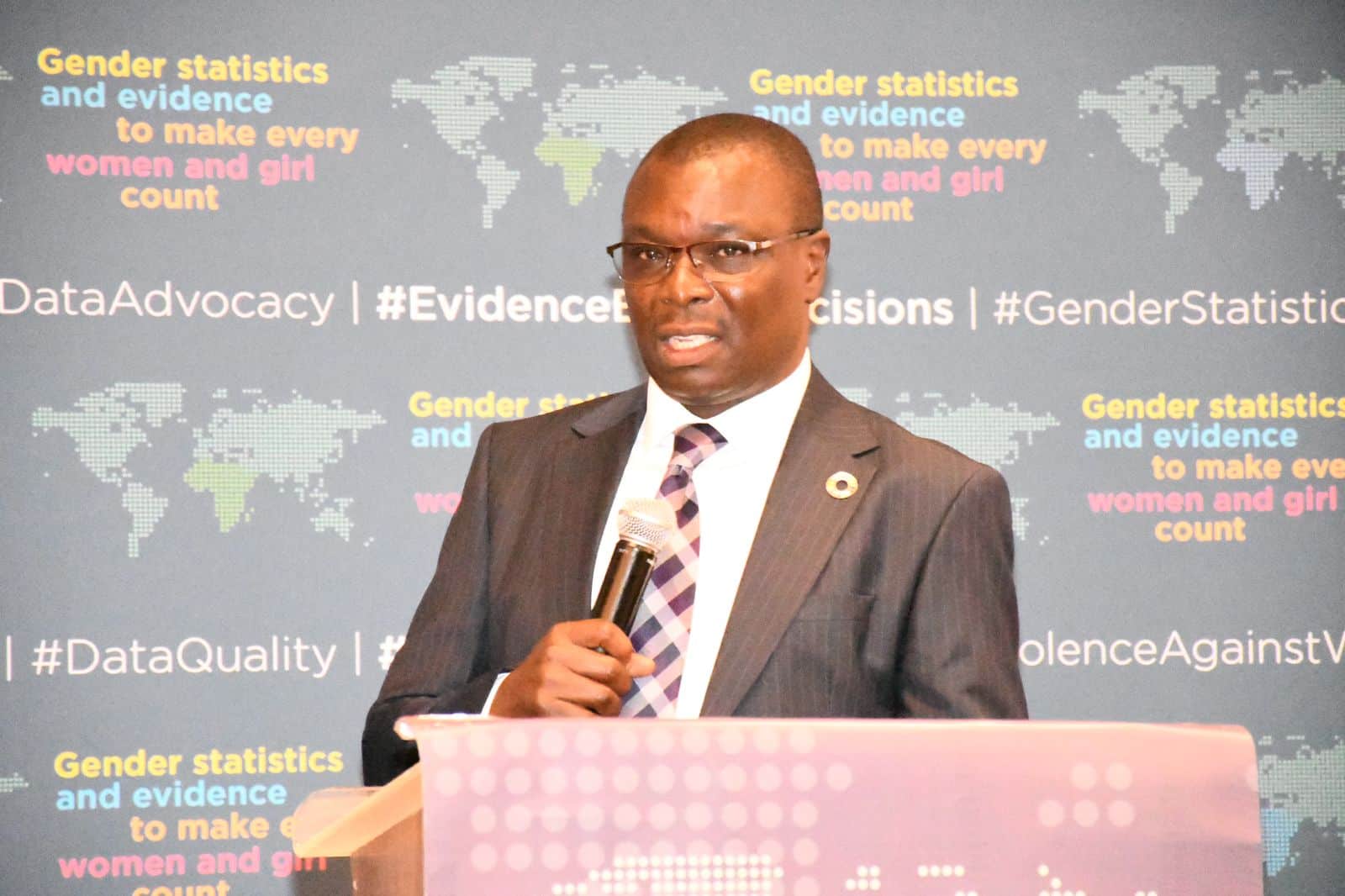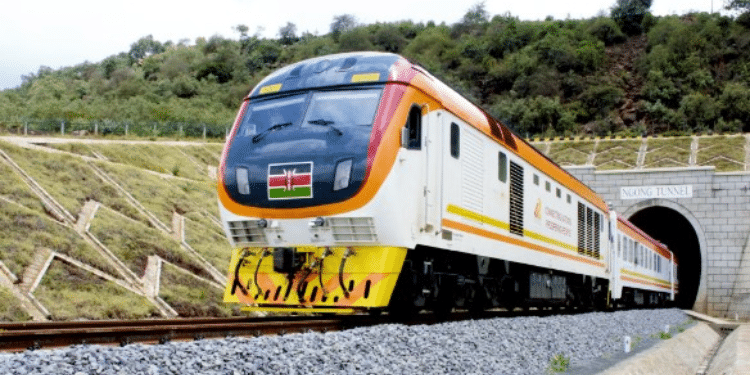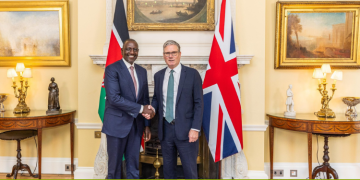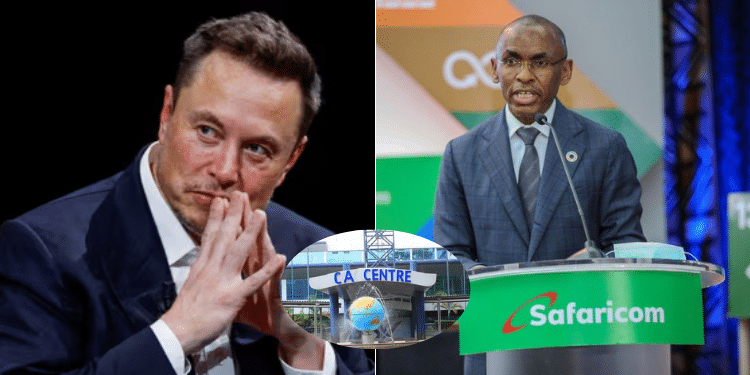Billionaire Elon Musk-owned internet company Starlink has lately intensified competition for Kenyan internet providers since it was launched in the country more than a year ago.
Recently, the internet company introduced renting options for its standard kit hardware, months after it unveiled a new cheaper data plan for the Kenyan market back in June.
The developments have prompted Safaricom to ask the Communications Authority of Kenya (CA) to regulate entry of satellite internet service providers such as Starlink in Kenya.
The Kenya Times obtained a letter by Safaricom, which is owned by the government of Kenya, South Africa’s Vodacom and Britain’s Vodafone, addressed to the CA Director-general David Mugonyi.
The telecommunications company in the letter expressed concerns about the granting of independent licenses to satellite internet providers.
“Safaricom kindly requests the Communications Authority of Kenya (“CA”) to carefully assess the risks of granting independent licenses to Satellite service providers and the consequent harm it may cause to Kenya,” Safaricom said.

It called on the Authority to consider asking satellite providers to operate as “infrastructure providers” to mobile network operators like Safaricom.
Letter by Safaricom
Further, the company said this would ensure providers invest in Kenya, employ local people and comply with Kenya laws.
Also Read: Safaricom Awarded with Global Re-Certification; What It Entails
“We propose that the CA instead consider mandating that Satellite service providers to only operate in Kenya subject to such providers establishing agreement with an existing local license,” added Safaricom.
“Under such agreement, Satellite service provider(s) will appropriately operate as infrastructure providers to such licensee(s) and in so doing enable related innovation whilst avoiding the potential harm discussed in subsequent paragraphs of this letter.”
The telecommunications giant argues that satellite service providers should not be granted a license directly/independently but rather only permitted to operate under the license rights of the local license.
Competition for local Kenyan Internet providers
This comes after the American satellite internet provider launched a rental option, allowing Kenyans to acquire internet hardware in installments.
The company said that customers can now access its internet service by paying a one-time activation fee of Ksh2,700 and a monthly hardware rental fee of Ksh1,950.
This new model aims to make Starlink’s services more accessible to Kenyans who previously faced high upfront costs to acquire the hardware, ranging from Ksh29,000 to Ksh74,000.
“Starlink now offers Starlink kit rentals throughout Kenya. Rent Starlink for Ksh1,950/month or purchase for Ksh45,500,” Starlink announced in a statement.

Since its debut in Kenya in July last year, Starlink has been actively expanding its market presence with affordable internet packages, rubbing shoulders with local players such as Safaricom and Airtel.
Before launching the rental option for the internet hardware, Starlink had announced a new deal that reduced the price of the standard hardware kit which stood at Ksh45,500, by 34.06 percent.
In the offer window, which was to run until August 14, Kenyans enjoyed a new cost of Ksh29,999 when purchasing the hardware equipment.
The Kenya Times back then conducted a fact check by visiting Starlink’s website and confirmed that the internet firm had indeed slashed the prices.
At the discounted price, Kenyans were expected to pay a total of Ksh33,099, factoring in the Ksh3,100 shipping and delivery fees.
Starlink Launches Cheaper Data Plans in Kenya
Also, the internet firm had in June unveiled a new cheaper data plan for the Kenyan market, increasing competition for Safaricom and Airtel that currently have a big grip.
Also Read: Elon Musk’s Starlink Reduces Internet Prices in Kenya
Starlink unveiled a 50 gigabyte (GB) monthly data package at a rate of Ksh1,300, less than half the asking price for Airtel (Ksh3,000) and market leader Safaricom (Ksh2,500), for similar package.
However, subscribers of the Starlink service had to still part with Ksh45,500 for an installation hardware that would unlock access to the offering.
This is in stark contrast to the model adopted by local telcos where users only need to activate a registered SIM card.
The internet firm which offers high internet speeds of up to 180 Megabits Per Second (Mbps) to remote areas entered the Kenyan market in July 2023.
As of Friday, August 23, 2024, it has established its presence in several African countries including Kenya, Sierra Leone, Nigeria, Mozambique, Eswatini, Rwanda, Benin, Zambia, Madagascar and Malawi.
When it was launched in Kenya, Starlink’s standard hardware kit cost was at Ksh89,000. The price went up factoring in shipping and local delivery charges, pushing it past Ksh92,000.
Starlink’s installation fee covers hardware kits, including a Starlink dish, a mounting stand, cables, and a power source.
According to its website, the internet firm aims to connect many people worldwide including those in remote areas that traditional internet service providers have not covered.
Follow our WhatsApp Channel for real-time news updates!
https://whatsapp.com/channel/0029VaB3k54HltYFiQ1f2i2C






